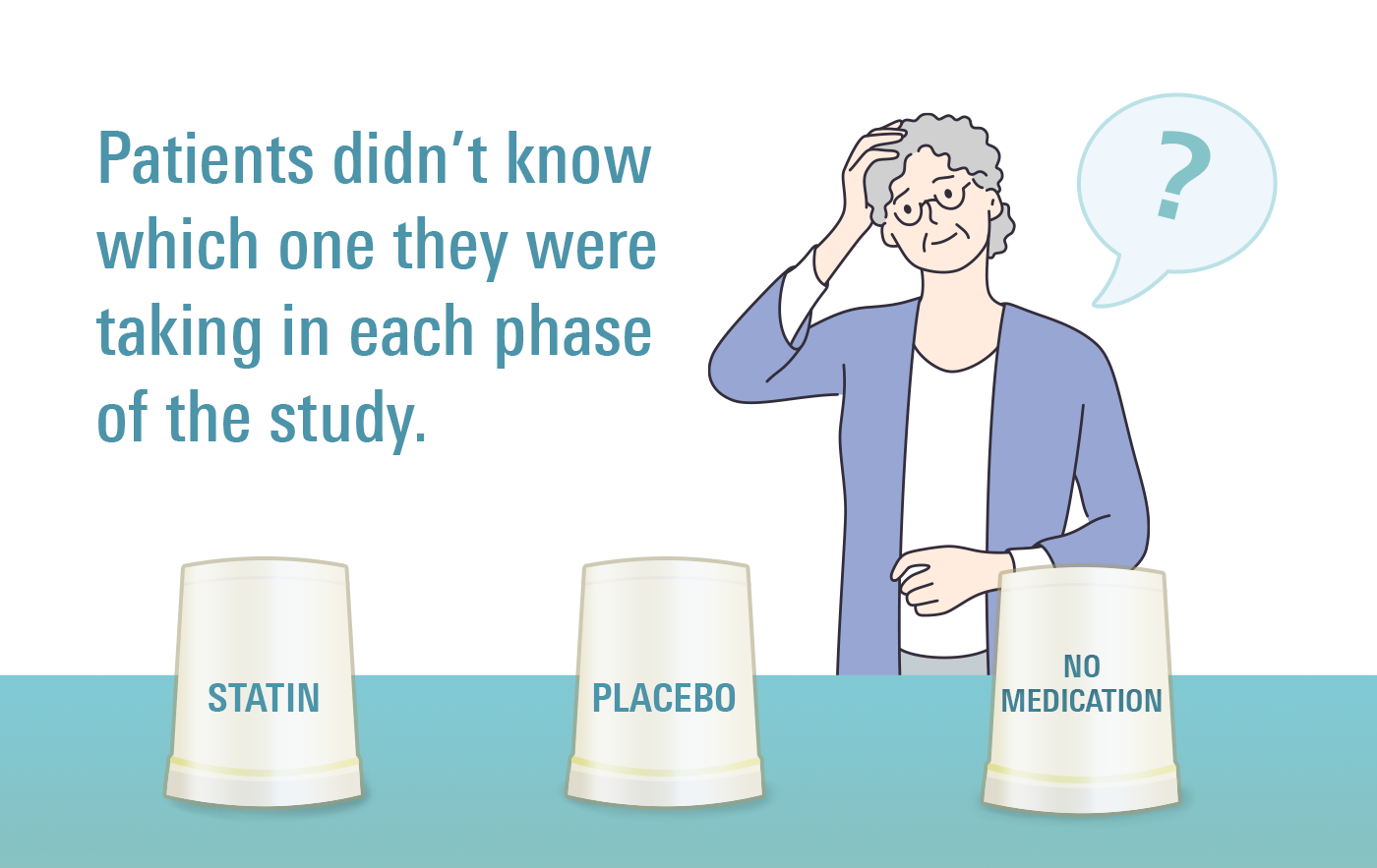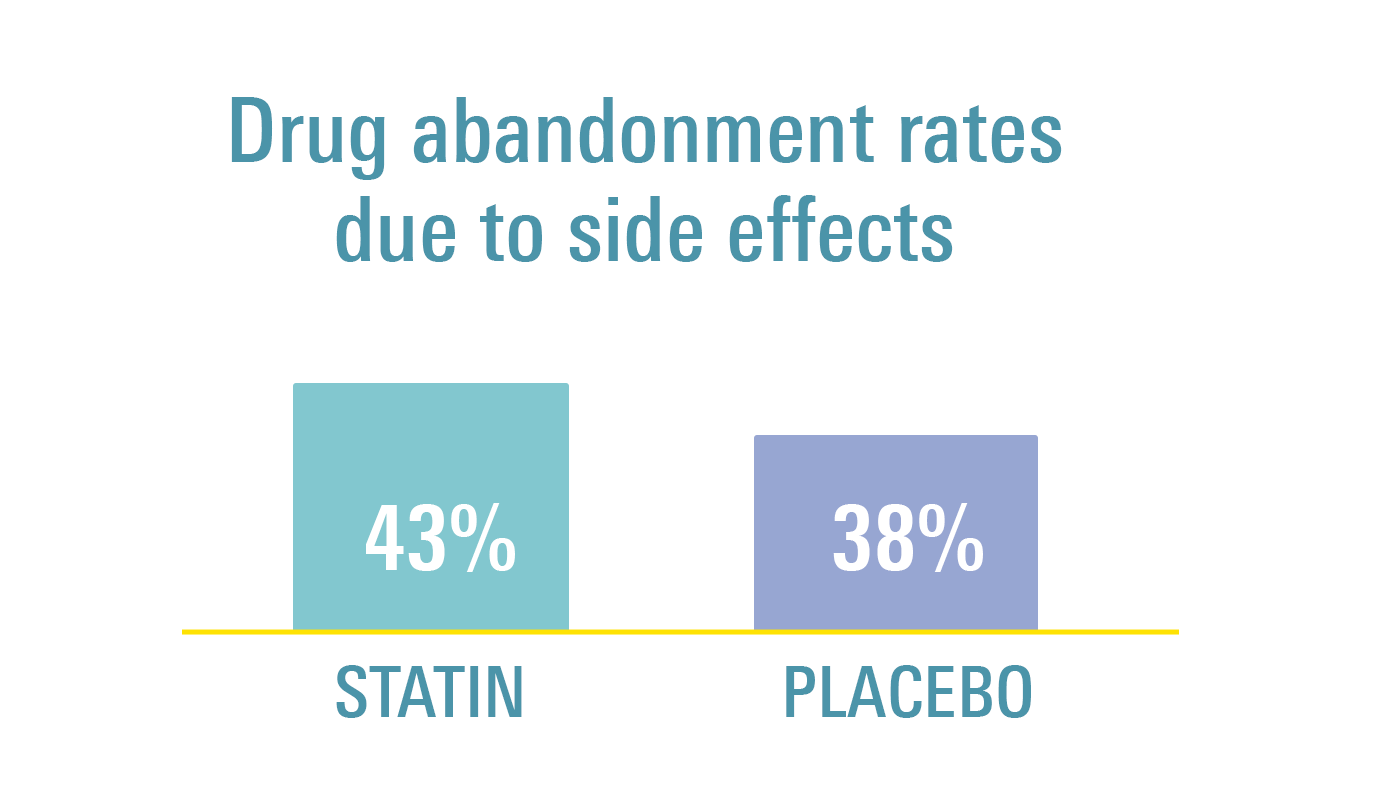Statin Symptoms: Could They Be In Your Head?
Statins are cholesterol-lowering medications prescribed to patients to help get their cholesterol levels under control. Controlling your cholesterol levels is extremely important for your heart health. You can check out our cholesterol blog to learn more!
A lot of people who start on a statin stop taking it due to side effects, with the most common being muscle pain. When this occurs, switching statin doses and changing to a different statin are reasonable options your healthcare provider may propose to you.
The problem with evaluating muscle pain is that it is very subjective, and therefore, it frequently relies on self-reporting from a patient rather than something that can be directly measured by the healthcare provider.
A recent study called the SAMSON study aimed to investigate if patients' perceived pain symptoms are ‘real’ or potentially in their heads.
Potential Theories as to Why Statins are Associated with Pain
Before discussing the SAMSON study, let’s first hypothesize other reasons, besides statins, as to why someone taking a statin may experience muscle pain. While a healthcare provider should never rule out the statin as the true cause of pain in someone, there are a few alternative theories that have recently been proposed.
Changes in your Lifestyle: If you’ve been recently diagnosed with high cholesterol you may not only have started taking a statin, but you may have also made some lifestyle changes, like exercising more. The muscle pain some people who are new to statins experience may be the side effects of your hard work exercising rather than from your actual statin.
The Nocebo Effect: When your healthcare provider goes over the list of potential side effects for your statin, this may lead you to believe that taking these medications will cause you pain. This is referred to as the ‘nocebo effect’. The simple act of talking about this may instill the belief that when you take a statin you will get muscle pain.
Age Related Aches & Pains: Another possible reason for the symptom onset is the fact that statin therapy is usually initiated at a time in people's lives where pain and ailments become more frequent (such as at an older age). Therefore, you may get those symptoms regardless of being on the medication or not, but since starting the medication is the only new thing that has been added to your daily regimen, these pains are often blamed on the medication.
Can you think of any other ideas? Drop them in the comments below!
How the SAMSON study worked
The SAMSON study was created to assess the daily symptom scores of patients during 3 phases:
- while taking a statin
- while taking a placebo (no medicinal ingredients at all, usually referred to as sugar pills)
- when taking no medication at all
 All of the patients included in this study had previously abandoned their statin therapies due to intense side effects.
All of the patients included in this study had previously abandoned their statin therapies due to intense side effects.
The placebo pills were made to look identical to the statin pills so that patients could not tell which medication they were taking.
Patients were given 12 bottles, with each containing a 1-month supply of medication; 4 bottles contained statin medication, 4 bottles were empty, and 4 bottles contained the placebo pills. These bottles were then randomly ordered so the patients had no idea which they were taking.
Patients were then asked to submit daily symptom intensity scores to rate their symptoms on a scale from 0 (meaning no symptoms) to 100 (meaning the worst imaginable symptoms).
Results of the study
 As expected, of the three phases, patients experienced the least amount of symptom intensity when not taking any medication, but surprisingly, they experienced a similar intensity of symptoms when on either the statin or the placebo pills.
As expected, of the three phases, patients experienced the least amount of symptom intensity when not taking any medication, but surprisingly, they experienced a similar intensity of symptoms when on either the statin or the placebo pills.
They found that 26 of 60 patients (43%) stopped taking their statin medication for that month due to symptoms and 23 of 60 patients (38%) had stopped their placebo medication for that month due to symptoms.
What this indicates is that the symptom intensity can be more attributed to the action of taking a pill rather than to what the pill contains.
What the study investigators did next was share these results with the patients so they could see that for most of them had symptoms on both the placebo and the statin. This encouraged some participants to attempt statin therapy again.
The results of this counseling approach were fantastic.
At a 6-month follow-up after the trial was over, 50% of the participants had successfully restarted statin therapy.
Should you give your statin another chance
True statin intolerance is hard to determine because pain symptoms are subjective for each person and it is hard to pinpoint a direct cause of those symptoms.
Another study similar to this one, the IMPRES study, found that true statin intolerance was only indicated in 6.2% of patients. Also, patients who do have statin intolerance may have a better outcome on a different lower-intensity statin.
Stopping statin therapy is correlated with an increased risk of heart disease which is why it is very important to try and stay on them, as they can be considered lifesaving drugs.
One useful thing patients can do to assist their healthcare providers in determining the true cause of their pain is to try symptom tracking. This involves detailed logging of what your symptoms are when you started having them, as well as what has changed in your life to possibly contribute to this. This will help healthcare providers pinpoint the actual cause of your pain and treat it effectively.
The SAMSON study showed that these early ideas we have about statins causing pain symptoms may contribute more to us actually experiencing those symptoms than the medication itself. Though side effects from statins are real, they may be driven more by the act of taking a pill rather than the fact that the pill contains a statin. Have a discussion with your healthcare provider today about re-introducing your statin therapy.